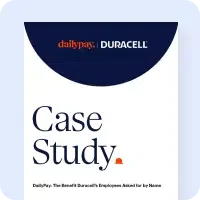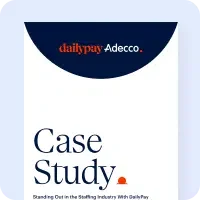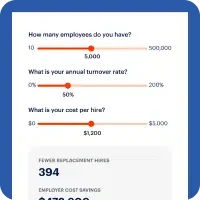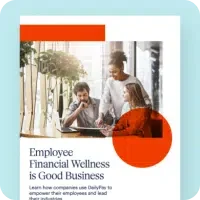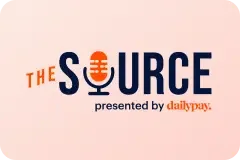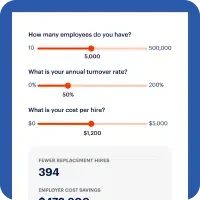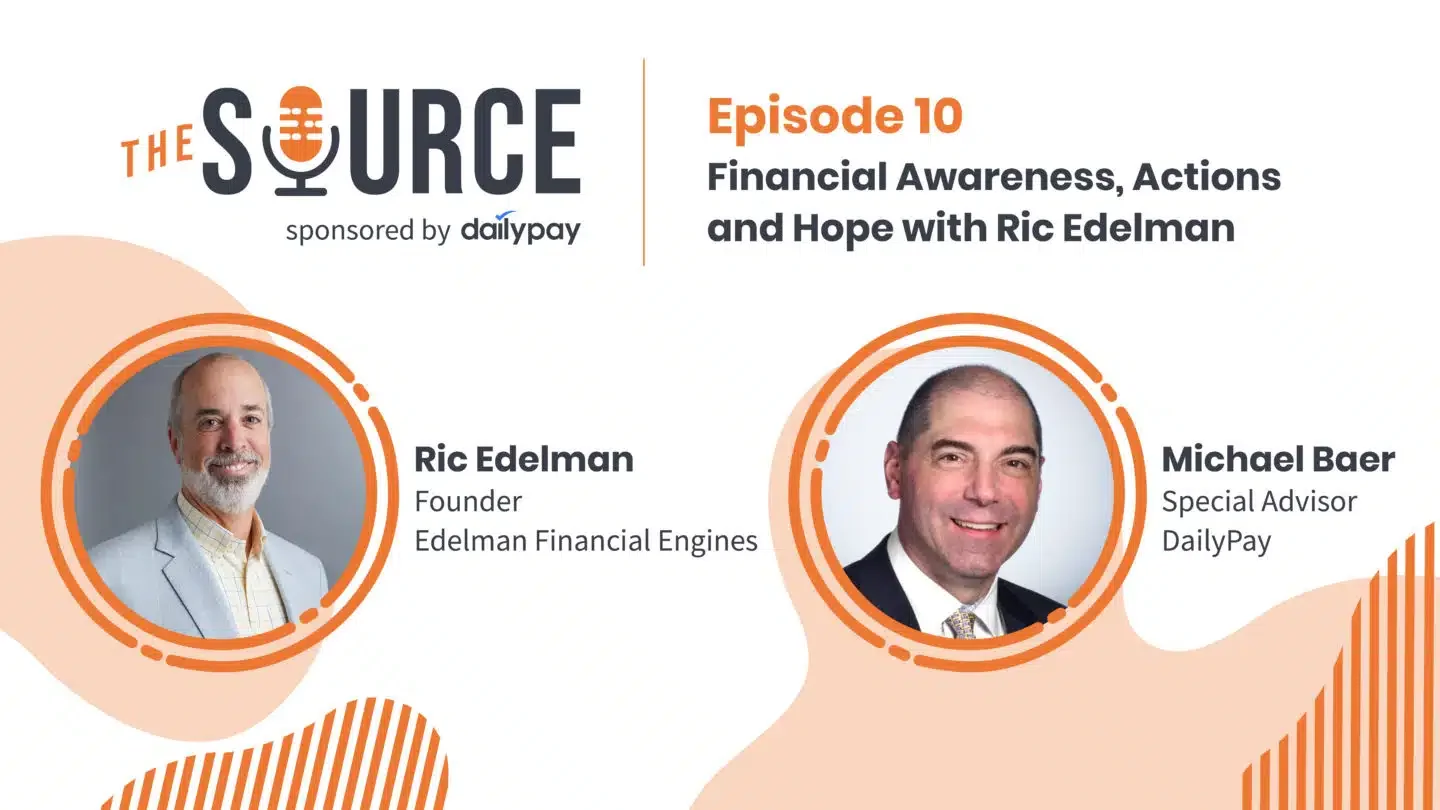DailyPay and Ric Edelman have teamed up with the Bipartisan Policy Center’s Funding Our Future Coalition to help guide policies so that more people can secure a financially stable future. Hear Ric discuss the vehicles that exist for those with modest incomes to not only make ends meet, but also to set a path for financial wellness.
About Our Speakers
Ric Edelman is a leading financial educator and a champion of improving financial literacy for all Americans. An award-winning host on the radio airwaves for some 30 years, producer of several award-winning specials for Public Television, and a #1 New York Times bestselling author, Ric is well regarded for his thought leadership in the financial services industry.
He’s in both Research magazine’s Financial Advisor Hall of Fame and Barron’s Hall of Fame, and was ranked three times as the nation’s #1 Independent Financial Advisor by Barron’s and among the Top 10 Wealth Advisors by Forbes.
Ric is founder of the RIA Digital Assets Council and the Funding Our Future Coalition, along with the Bipartisan Policy Center. He currently serves as a Distinguished Lecturer at his alma mater, Rowan University. With Jean, his wife, Ric founded Edelman Financial Engines, the nation’s #1 independent financial advisory firm.
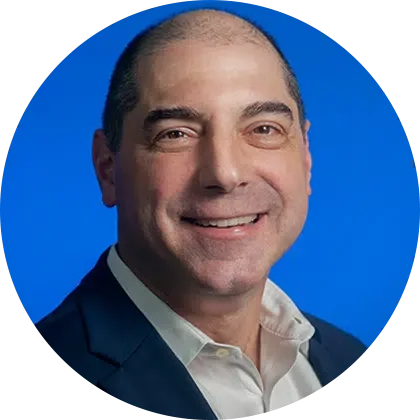
Michael Baer is the host and executive producer of The Source podcast. Michael previously oversaw domestic and international payroll news and analysis at Bloomberg Tax, previously BNA.
In a career spanning three decades, Michael transformed the role of managing editor, becoming an information services leader who managed every aspect of world-class global products and platforms, while continuously increasing revenue and achieving market-best customer satisfaction. He directed a team of editors and writers who were charged with translating complicated tax and labor laws into English so non-lawyers could easily understand and apply them, and was integral in organizing and placing that content on easy-to-access web platforms, resulting in the highest net promoter scores the company had seen for any of their offerings.
Michael has been a frequent public speaker for conferences and webinars, and now is the host of The Source, sponsored by DailyPay. Michael joined the DailyPay team in 2019.
In this podcast you will learn …
- Ric Edelman and DailyPay are part of the Funding Our Future Coalition to help people secure their financial futures
- How people with modest incomes can financially weather this economic storm
- That advanced financial technology is aiding our ability to save
- Edelman’s formula for digging out of a financial hole
About this podcast:
Welcome to The Source, by DailyPay, the definitive destination for timely and informative regulatory updates and issues in the on-demand pay industry.
DailyPay is the recognized gold standard for providing the daily pay benefit and pay experience.
This material is for general information only and the views expressed herein reflect only the views of the participants.
This program should be considered marketing material and should not be relied on as legal, tax, accounting, or regulatory advice.
And now, let’s welcome our host, Michael Baer.
Michael Baer:
Hello, everyone, and welcome to The Source. The Source, sponsored by DailyPay, provides insights into active and upcoming legislation impacting the on-demand pay industry. And with special guests, we help clarify issues surrounding early access to pay and the pay experience.
Michael Baer:
And speaking of guests, today, I have the pleasure of talking with Mr. Ric Edelman. Ric Edelman, he’s a leading financial educator and a champion of improving financial literacy for all Americans. An award-winning host on the radio airwaves for some 30 years, producer of several award-winning specials for public television, and a number one New York Times bestselling author, Ric is well-regarded for his thought leadership in the financial services industry. He’s in both Research Magazine’s Financial Advisor Hall of Fame and Barron’s Hall of Fame, and was ranked three times as the nation’s number one independent financial advisor by Barron’s and among the top 10 wealth advisors by Forbes.
Michael Baer:
Ric is the founder of the RIA Digital Assets Council and the Funding our Future Coalition, along with the Bipartisan Policy Center. He currently serves as a distinguished lecturer at his alma mater, Rowan University. With Jean, his wife, Ric founded Edelman Financial Engines, the number one independent financial advisory firm. Ric, welcome to the show.
Ric Edelman:
Great to be with you, Mike. Thank you.
Michael Baer:
Okay, well, let’s get started here. I have a few questions. You are affiliated with the group Funding our Future, as is DailyPay, because we both are focused on raising awareness that tools exist to help those with modest incomes to secure a more financially stable future. So what is the first thing you would tell someone who say is a working single mom or dad struggling to make ends meet while supporting a family in this quarantine economy, no less? What would you tell them? First thing?
Ric Edelman:
It’s a very difficult situation, Mike, for tens of millions of American households, and a lot of the folks watching us today are dealing with this on a daily basis. And I get it. As a financial advisor, our firm is devoted to serving middle-class Americans. Most financial advisors tend to serve the wealthy, the very rich in America. We don’t. We serve middle-class folks who are trying to attain financial security for themselves and their families, get kids through college, care for aging parents, save for around retirement.
Ric Edelman:
And so we see this a lot, and the message that we have is really twofold. Number one, any particular challenges that you’re going through right now in this crisis due to the pandemic is not your fault. This is the circumstance that we are all in and we are all victims of the times that we live in. And at the moment, it’s a very difficult period of time. The pandemic has caused 30 million Americans to lose their jobs. We are not over yet with this crisis because we are waiting for a vaccine which is going to take, the scientists tell us, a year to 18 months before everybody is able to be vaccinated. There’s open debate as to how willing many Americans are to be vaccinated. We’ll have to deal with all of that when it comes.
Ric Edelman:
But we’re going to be dealing with this crisis for quite some time. The Department of Labor in fact says that those who lose their jobs in this crisis, it could be as many as 10 years before they’re able to get new jobs back. The same thing happened in 2008. It took 10 years for the unemployment rate to return to ’07 levels. That’s a pretty common circumstance with most recessions. It takes a long time for everybody to recover who have been adversely impacted.
Ric Edelman:
So my first message to you is don’t ascribe any guilt to yourself. Don’t blame yourself. Don’t feel that this is due to a weakness or a failing on your part because it’s not. You’re not alone. Everybody is going through something like this or knows someone who is, and just recognize that you will get through this because we always do in America. Never bet against America. We are going to get through this, hopefully sooner rather than later.
Ric Edelman:
The second message that I have for you is because of the first, because this is just something beyond our control, we need to simply recognize that we need to focus on today. We need to focus on where you are right now. Paying the bills is what matters, but not all of the bills. You need to focus on your home rent or mortgage, your car, because many people can’t work without their car. So you lose your car, you lose your job. So you got to make sure you don’t get your car repossessed, food and medicine. That’s about it. All other expenses can be eliminated, deferred, delayed.
Ric Edelman:
So we just have to prioritize to do whatever we can to get through the crisis as best as possible so that when job opportunities return or greater stability and certainty of jobs is available, we can then return to the longterm plans that we’ve gotten, that we had in place before the crisis emerged.
Ric Edelman:
In other words, we need to focus on today. We need to minimize expenses as best we can. We need to avoid liquidating our retirement accounts at work. We need to avoid going into debt as best we can. And talking with a financial advisor can be helpful because they may be able to offer you ideas that you hadn’t really considered on your own before regarding your income, your expenses, your cash management, your investment strategy, how you’re managing your retirement plan at work and other employee benefits and so on.
Ric Edelman:
So focus on the moment because we’re in the middle of a storm and we’ve got to make sure that we survive the storm so that our longterm financial plan won’t be adversely impacted.
Michael Baer:
Okay. That’s great. So I got two things from that. As you mentioned, it’s not your fault that you’re in a predicament right now. And the second thing is please prioritize based on actual needs and weather the storm, I guess. We’re all kind of tying ourselves to the masts right now and trying to get through this.
Ric Edelman:
Exactly right.
Michael Baer:
Okay. Second question I have here, DailyPay and Funding our Future recently conducted a survey after the pandemic took hold that showed that those that said they are more likely to save for the future vastly outnumbered those who stated they were less likely to save by more than three to one. So has the pandemic changed some attitudes towards savings for the better? And do you think maybe this will be retained like the financial habits of the generation that went through the Great Depression?
Ric Edelman:
I hope so. So yes, it has changed habits and we hope that they stick. There’s nothing like going through a crisis to help you realize personally that your own individual behavior really matters. So yes, those who were good savers and who managed their expenses effectively and didn’t amass a lot of debt entered this crisis in much better financial condition and were able therefore to withstand the job furlough or lay-off or pay cut that occurred.
Ric Edelman:
So yes, those who have been managing their money properly, prudently, maturely, professionally, are in much better shape and they are recognizing the value of having their good habits. It’s paying off.
Ric Edelman:
Those who didn’t do those things and who were having the attitude of [inaudible 00:08:43], “I’ve got a high income, I’ve made a lot of money and life is good,” and they’ve just been wantingly spending it on cars and clothes and vacations and jewelry and whatnot, are now realizing that they were living paycheck to paycheck without a lot of stability as a foundation in case there was an interruption in that income. And now, they’re realizing that they were living beyond their means and life is much more precarious than they realize. Those folks are now looking around saying, “Look at everybody else losing their jobs. I might be at risk too.” And so it is dramatically increasing savings.
Ric Edelman:
Also, there’s been a side benefit to the lockdown. We’re not going out to restaurants like we were, we’re not going to movie theaters or ballparks. We’re not traveling to Europe. We’re not spending money the way we were, and therefore, we have more discretionary income. And a lot of folks are saying, “I better sock it away as a rainy day fund in case this gets worse.”
Ric Edelman:
And so, yes, you’re right, the savings rate has skyrocketed, which is great news. Will that persist after the crisis is over, will people internalize this message and stick with their good savings plan? I hope so, but I’m not convinced yet how optimistic I should be on that basis. I think that when the crisis is over, there’s going to be a sudden release of all the built-up anxieties that have occurred, and people who have not been able to travel, for example, they’re suddenly going to go on vacation where they can. I think there’s going to be some of that, at least in the short term. And rightfully so. That makes perfect sense. But I do hope that this reinforces for everybody the importance of saving as a regular function of your personal finances for yourself and your family in the long run. I hope it sticks as it did, as you noted, with the greatest generation of the Depression babies. They developed lifelong savings habits to their benefit.
Michael Baer:
That’s right. And very practical ones too. Great lessons that were learned by those folks who lived during that time. And yeah, we all hope that it sticks, that this savings rate continues to increase.
Michael Baer:
So next question, advances in technology, and now, really, the practical requirement that even the most simple buy and spend transactions involve no humans. This technology has also taken the ability to save and monitor one’s finances to another level. Can you tell me how this benefits our financial wellness and are there any potential downsides to this development?
Ric Edelman:
It’s wonderful. The ability to save and invest has never been easier. And it’s thanks to FinTech, financial technology. I remember back when my wife and I were newly married in the ’80s, we went to the bank Friday afternoon to get 50 bucks out of the bank, and that was our spending money for the week, for the weekend. And if we didn’t get to the bank by three o’clock when they closed, we had no money and we didn’t do any spending. We weren’t going to go to dinner. We weren’t going to go to the movies and buy popcorn or whatever.
Ric Edelman:
Today, of course, nobody cares about banking hours because banking is essentially 24/7. We have credit cards, we have debit cards, we have ready access to cash at all times, and that has gone away. And that was in the ’90s. Today, of course, we have online payment systems, PayPal and Venmo and Zelle and many other services. We have the ability to save and invest in ways that never existed before, online banks that are offering higher rates of return 24/7 thank traditional brick and mortar banks.
Ric Edelman:
We have the ability to invest in a way that never existed. Mutual funds are extraordinarily prevalent. Now, even the ETF environment, exchange traded funds, which are newer, better technologically available versions of mutual funds, lower in cost, better pricing throughout the day, better transparency than mutual funds offer, and the best part is that you can now buy these things commission free and with only $5. You don’t need to have thousands of dollars to invest, going through a broker who’s going to charge you 3% round trip for the transactions.
Ric Edelman:
So this has demonetized the cost of investing. It has democratized the opportunity of investing, lowering the barriers to entry. The prevalence of 401k plans in the workplace, something that didn’t exist prior to the 1970s, is now making it easy for every worker to save for their future.
Ric Edelman:
And so these innovations are wonderful. They’re really taking away all the excuses for you not saving and investing. We even have programs now that will allow you to save the coins, the change when you make purchases. It rounds up your purchase to the nearest dollar, takes those coins and throws them into a savings account. I mean, literally saving without trying. So we’ve taken away all the excuses and you really have no reason not to be saving for your future.
Michael Baer:
Okay. And then in terms of, I mean, there have been early adopters, and then these technological advances tend to go through these cycles of acceptance. But now, I mean, there’s still, I think with the pandemic, there still has been a certain number of people that had resisted adopting some of these new technologies that are now kind of forced to do that. Would you agree?
Ric Edelman:
Yes, very much so. The pandemic is radically accelerating the adoption of exponential technologies. It’s the basis of my most recent book, The Truth About Your Future, which was a New York Times Business bestseller when it was released, which talks about financial technology, AI, robotics, big data, 3D printing, nanotech, biotech, bio informatics. All of these technologies are new as a result of the advancing developments of computers.
Ric Edelman:
And although these advances have been moving along at a very fast clip, the pandemic is actually accelerating this speed of adoption. You can’t go to the bank, right? Because the bank branches were closed for months during the lockdown, forcing you to bank online. And today, people are realizing you can just take a photograph of your check with your phone and transmit it to your bank branch immediately. There’s no reason to go to the physical branch.
Ric Edelman:
So everybody’s beginning to realize, “Well, yeah, if I need to send money to my child, I can do that through PayPal or Venmo. I don’t need to write a check and have it take a long time. I don’t have to transmit money internationally by Western Union, which takes five days and costs 8%. I can do it with Bitcoin. It’s almost instantaneous and it’s free.”
Ric Edelman:
So yes, this is, I think, going to accelerate the adoption. People are growing more and more comfortable. I remember back in the ’90s, people were afraid to use credit cards in a department store because they were afraid of giving their credit card number to the merchant in the store. And then people got comfortable with that and they became nervous about using credit cards on the internet. They were afraid that typing in their number and sending it across the wherever was going to put them at risk. Today, we think nothing of this. So it’s merely a question of getting used to it.
Ric Edelman:
And what’s fascinating is that the adoption of these technologies is growing, not merely among the gen X, the gen Z and the millennials, it’s growing among those who are Baby Boomers and Depression babies, people in their sixties, seventies, eighties, even my mom in her nineties, who are accepting these technologies, and that’s really wonderful.
Michael Baer:
Well, that’s true. I mean, I think that the pandemic has accelerated that I think for those that have resisted until this time. So let’s go to a different kind of question here. The economic turmoil of businesses having to shut down or curtail their operations, the stock market seems to have kind of shrugged all this off, at least for now. So what advice would you give those who, like you service, those people with modest incomes, maybe you get paid hourly to take advantage. How can they take advantage of the market strength?
Ric Edelman:
Well, we have been very concerned over the past five months about the stock market. We saw, of course, when the pandemic began, the stock market immediately fell 35% in value. It was the fastest decline of that size in stock market history. In fact, the stock market, the NASDAQ fell 10% in just six days, which was a record.
Ric Edelman:
But when that occurred, the stock market then decided, “Well, that’s really overblown. This isn’t as big a crisis as we thought,” and we saw what happened in the five months since. The stock market, from April through the end of August, skyrocketed with more than 50% gains. The NASDAQ was up over 70% in just five months.
Ric Edelman:
We were growing very concerned about that rapid recovery in the stock market. Because the pandemic is still with us. The economic impact is still here. Millions of Americans remain unemployed. We see continuing weakness regarding mortgage delinquencies, car delinquencies, millions of Americans still out of work, small businesses suffering, and the government stimulus programs largely expired back in the summertime.
Ric Edelman:
So when we look at what’s going on in the economy and we compare that to what’s happening in the stock market, there seems to be a massive disconnect, and that was troubling us for a significant amount. We’re now beginning to see that the stock market is in fact recognizing that notion. Since the end of August, the stock market has fallen three weeks in a row. And so far, this week, the stock market is down the biggest yet.
Ric Edelman:
So it does seem to be that the market is going through a correction. We believe this is healthy. It is something we’ve been widely expecting. Nobody knows how long this correction will occur, how deep it will go, how long it will last. We’ll have to wait and see.
Ric Edelman:
So we have two messages for people. Number one, if you’re going to invest, which is perfectly fine to do, recognize that investing is a long term activity. You should not be investing in order to get rich quick. That’s gambling. That’s speculating. That’s not investing. Investing is something you do to achieve longterm goals, such as sending a child to college in 10 years, saving for your retirement in 20 years, handling your income in retirement for 30 years. So focus on your longterm goals.
Ric Edelman:
And because the markets are sometimes volatile, as we’ve been experiencing in 2020, for reasons nobody could have predicted when the year began, we need to recognize that diversification matters a lot. Don’t put all your eggs in one basket. You shouldn’t be buying only stocks. You should own stocks and bonds and real estate and gold and exponential technologies and natural resources. There are 16 or so major asset classes and market sectors, and you should be invested in all 16 of them all of the time so that you have a longterm time horizon and the diversification helps reduce the volatility of the markets. So sure, let’s go ahead and invest, but do so because you’re trying to achieve longterm goals, not because you’re trying to get rich quick.
Michael Baer:
Okay. Yeah. So it does sound like, yeah, go ahead, and it’s okay to invest, but just make sure you’re diversifying and that you’re looking at the longterm. So thanks for that message there.
Michael Baer:
All right. I think we have one final question for you. Without sharing details of course, and I just kind of thought this up, if you were to create a secret sauce or a formula, like a soda mixture, let’s say, or a blend of spices for fried chicken, but apply this instead to individuals trying to break out of financial dire straits, what would be those elements? What would be in your financial wellness secret sauce?
Ric Edelman:
I’ll give you a four step process for creating the ingredients. Number one is to join your retirement plan at work. That sometimes surprises people that that’s my number one comment. I put that ahead of paying off credit card debt. So that’s number two. Why is joining your retirement plan at work number one? For the simple reason that the most powerful tool available to you for creating wealth is time. The sooner you invest, the more wealth you’re going to create. So don’t squander the time. While you’re trying to pay off debts, which will take you time, keep saving for your retirement.
Ric Edelman:
So you should be adding to your retirement plan at work at least as much as is necessary to qualify for the employer match. Many employers will match your contributions. If you put in 3%, they put in 3%, for example. It’s literally free money from the employer. So contribute to the retirement plan at work.
Ric Edelman:
After you do that, then take whatever available cash you’ve got on a regular monthly basis and pay down your credit cards, get rid of your expensive debt. You want to get rid of your high interest credit card first because that’s providing the most bleeding, that’s causing the most damage, the highest interest rate, and do whatever it takes to pay down those debts.
Ric Edelman:
Number three, step three is to build cash reserves, a rainy day fund. We normally would tell our clients three to 12 months worth of spending, but due to the pandemic, we’re saying as much as 24 months worth of spending, because if you lose your job, it could take a couple of years before you get a new one. So that’s step number three is build cash reserves.
Ric Edelman:
And finally, step number four, start to invest outside of your retirement plan in a diversified portfolio.
Ric Edelman:
So that’s the four step process. Your retirement plan at work, pay down debt, build cash reserves, and then save and invest beyond that. If you do those four things in that order, I’m confident you’ll have a bright financial future.
Michael Baer:
Okay. That’s great. And of course, at DailyPay, we do have save options for our clients, our employees, the employees that subscribe to Daily Pay. They get a chance to save out of each day if they want to and put it in a number of different vehicles. So that’s number-
Ric Edelman:
And it’s an illustration, Michael. It’s an illustration of what I put in the FinTech category. If it wasn’t for financial technology, DailyPay wouldn’t be able to exist. And the fact that the technology does exist today demonstrates how easy it is to save even incredibly small amounts. People are shocked when they discover how saving pennies on a daily basis adds up to massive amounts of money over long periods of time.
Michael Baer:
Yeah. Fantastic. Well, I think that’s about it for now. I thank you, Mr. Edelman, so much for your time to come here and give us some understanding of how people’s financial future can be a hopeful one, even during this difficult health crisis and economic turmoil.
Michael Baer:
And listeners, I thank you for joining us today at The Source, sponsored by DailyPay, where you can get information and analysis of developments related to pay experiences. Stay healthy and safe and keep an eye on your emails. And subscribe to The Source through dailypay.com/podcasts, as we will have another compelling issue along with updates very soon. Thank you very much for being here.
Speaker 1:
Thanks for attending The Source brought to you by DailyPay. Join us again next month for up to date insight on on-demand pay and pay experiences. Keep an eye on your inbox for more information regarding featured guests and new topics.

